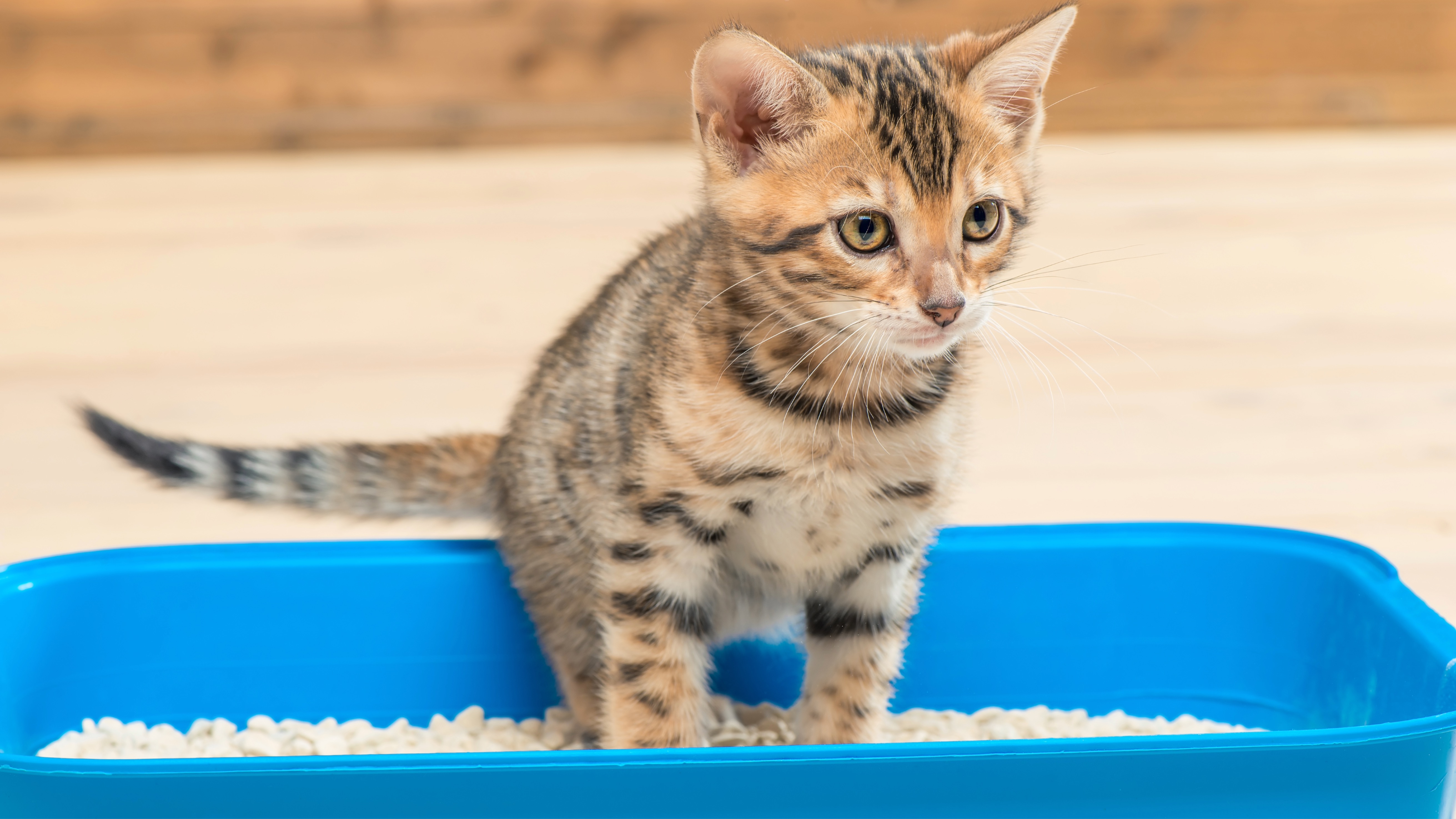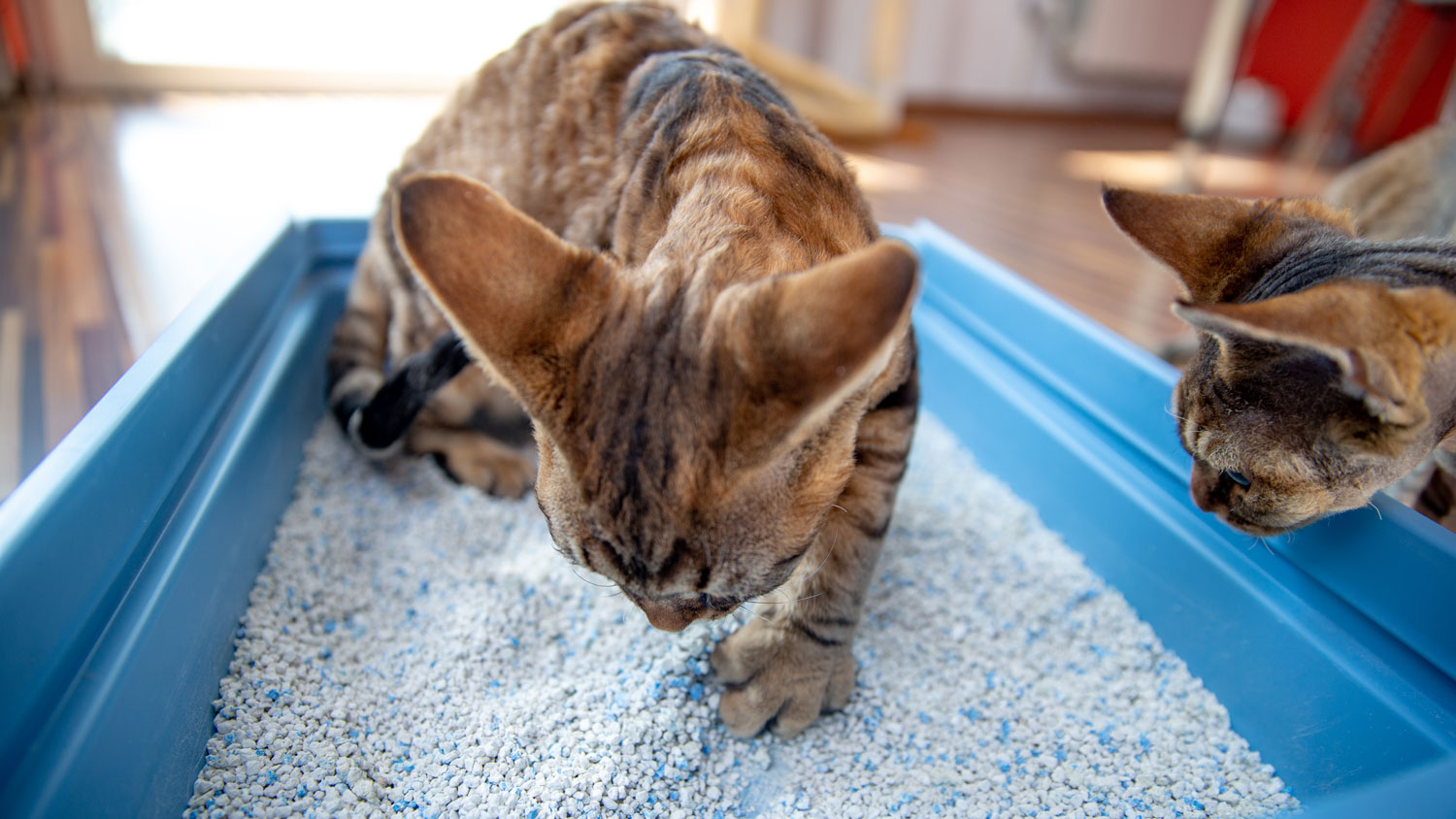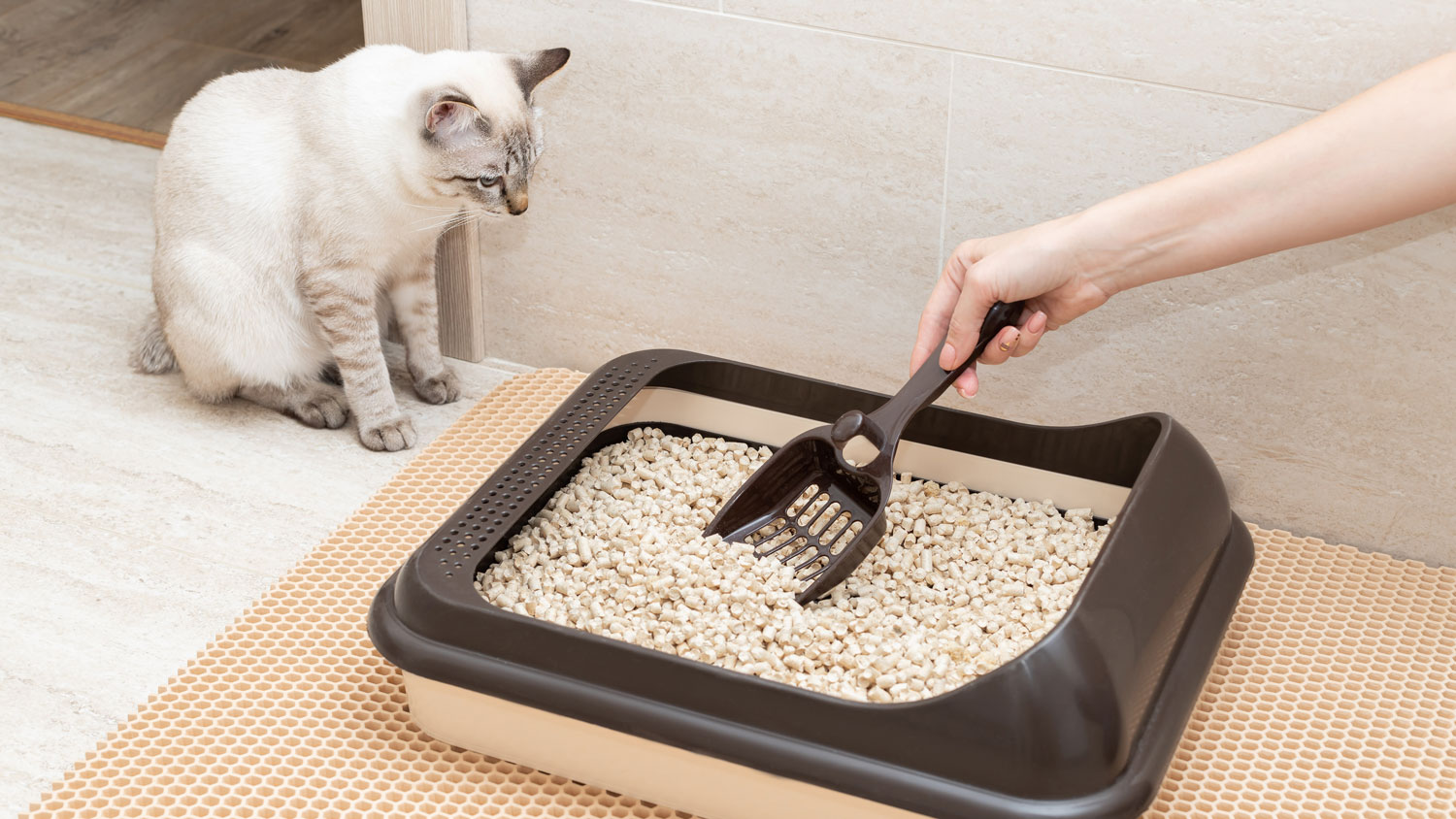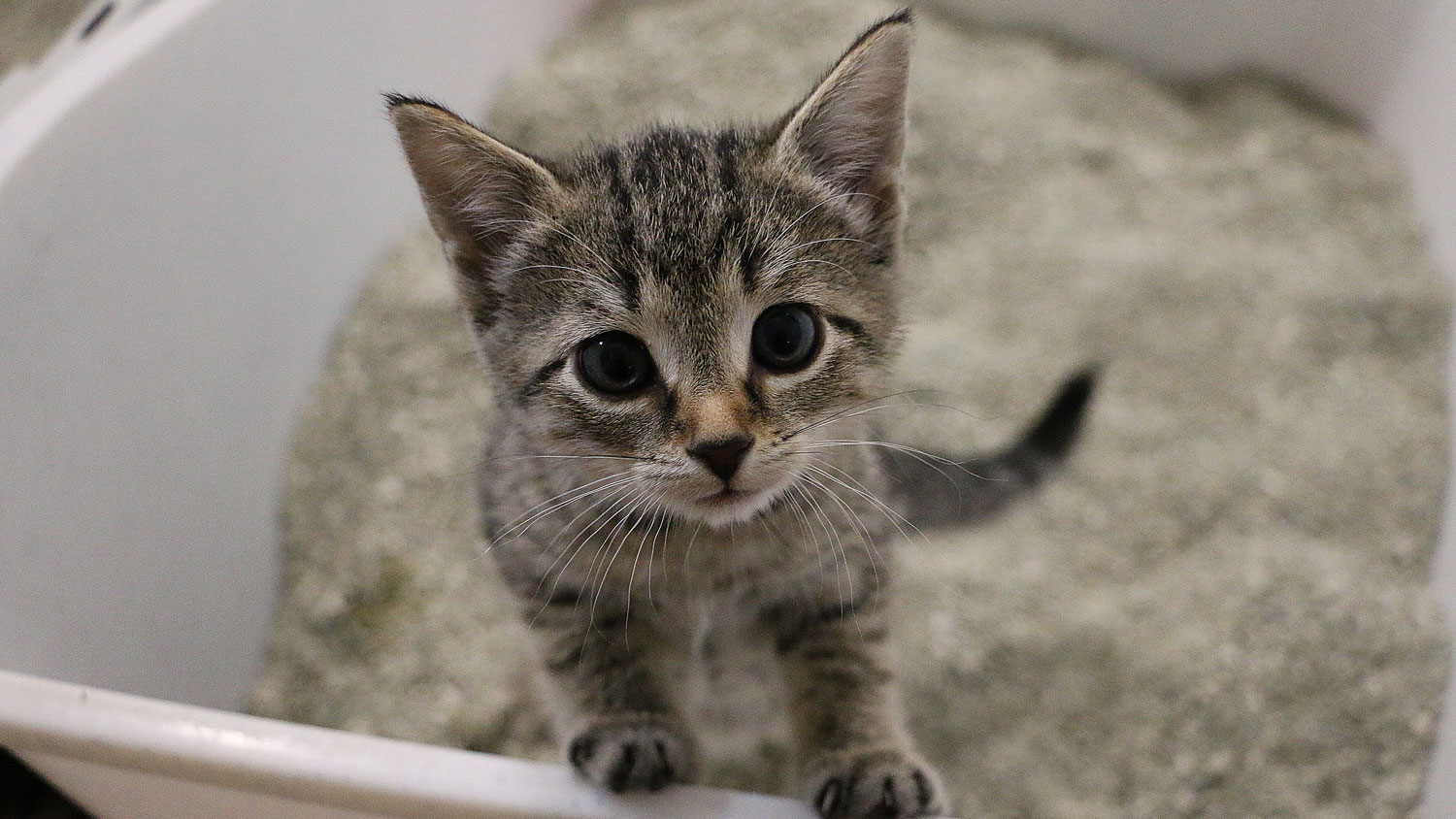
Is your cat playing in their litter box all of the time? If so, you may be wondering what on earth is going on. After all, while a litter box is the perfect place for your feline friend to do their business, it isn’t exactly the first place you’d think they’d head if they’re after a good time!
If you’ve invested in one of the best self-cleaning litter boxes, you’re likely delighted that your kitty is using it — after all, they’re not the cheapest pet product on the market. Still, if they’re choosing to spend extra time frolicking about in there, you may be starting to feel concerned.
However, according to expert vet Dr. Joanna Woodnutt, this behavior is typically nothing to worry about. “It’s often normal for a kitten to play in their litter box, especially if they don’t have as many places to hide and pounce from as they would like,” she explains. “It’s also one of the few times cats get to dig, and your kitten may enjoy practicing this important skill. Most cats grow out of playing in their litter box and it’s unusual for adults to spend much time in there.”
So, if your feline friend is playing in their litter box, it’s likely just one of those strange things cats do. Below, Dr. Woodnutt explains some of the most common reasons why cats play in their litter box and shares her thoughts on when it might be a cause for concern. Plus, she reveals whether there’s anything you can do to put a stop to this behavior. Let’s dive in…
Is it normal for cats or kittens to play in their litter box?
Most of the time, a cat playing in their litter box, either by scratching or digging, is normal behavior. You'll likely notice your feline friend typically covers or buries their poop which can explain some digging behavior: this is a natural feline instinct to use feces and urine to mark territory.
While some cats simply enjoy playing in their litter box, if the behavior becomes excessive or you notice your cat sleeping in their litter box, it could be cause for concern.
Why do cats play in their litter box?

“Generally cats play in their litter box because they enjoy a particular type of game and they’re struggling to get it elsewhere,” explains Dr. Woodnutt. “For instance, a cat might enjoy hiding in the box and pouncing on a passing playmate. If you don’t provide clean boxes for your cat to use for this, or the boxes are in the wrong place, it’s not surprising they’ll reach for their litter tray.
However, there can be other reasons why your cat might be spending a bit too much time in its litter box:
1. Medical issues
Is my cat sick? It's a question that may have sprung into your mind if you notice that your feline friend has suddenly started playing in their litter box. And according to Woodnutt, if this is a new behavior, it's worth getting your kitty checked out by a vet who can rule out a potential medical issue.
"There can be medical explanations for your cat spending more time in their tray that have nothing to do with playing," she says. "Stress, urinary problems and even problems with blood pressure or thyroid issues could cause your cat to spend more time in their box. If your cat isn’t usually playful or doesn’t seem to be playing in there, you should consider taking them to the vet for a checkup."
2. Pregnancy
If your cat is spending more time than usual in the litter tray, she might well be checking out places to have kittens, and for most cats the litter tray is a quiet, safe space, even if it's not the nicest one by our standards!
Curious as to whether kittens might be on the way? Our vet's guide to 'is my cat pregnant?' reveals the top signs to be on the lookout for.
3. Anxiety and stress
Our feline friends may seem calm and relaxed, but stress and anxiety in cats is just as real as it is in us humans. And if anxiety or stress gets the better of them, one of their reactions may be to bolt to a safe space, and strange as it may seem, the litter tray may be that very space.
It's their most private place and may well be the part of your home that they most consider to be theirs, so it makes sense that it could be the place they run to when things get a bit much. Any number of things could be causing your cat enough anxiety or stress to make it retreat to the safety of its litter tray.
Unexpected changes of routine, from small ones to bigger upheavals such as moving house, could drive up your cat's anxiety levels. Another cause could be loud noise, such as fireworks or building work nearby. Alternatively, the arrival of a new family member or a new pet could be stressing your cat — here's how to keep the peace in a multi-cat household if you've just adopted another kitty.
4. Territoriality
Similar to anxiety and stress, a challenge to your cat's territory may make it retreat to the safe space of the litter box. It could be a new pet or family member, or simply a change in its relationship with other cats in the house.
If you have multiple cats, it pays to ensure that there are enough litter boxes to go around. While you should have at least one per cat, it doesn't hurt to have extras about the house. That way there's less likelihood of territorial disagreements, thanks to reduced competition for litter boxes.
On a related note, if your cat is playing in the litter box after you clean it, while it might just be delighted at fresh new litter, the reasoning could be territorial: if your cat sees it messing about with its litter box, it might see this as an invasion of its territory (and in some cases it may attack you while you're trying to sort its litter out).
You can avoid this situation by making sure your cat can't see you cleaning its litter box; shut the cat out, get the job done and then open the door again, and it should be none the wiser.

5. Sudden change to routine
A sudden change in litter – particularly if you've moved to a scented option or one that's texturally very different to the one your cat's used to – can confuse your cat and break its association between the litter box and its toilet, and it instead starts treating it as a play area or sleeping spot.
To prevent such confusion, don't completely change its litter immediately; instead start mixing the new litter in with the old stuff, and gradually increase the ratio of new litter over a few days until your cat's adjusted to the change.
6. Boredom
Is your cat bored? If they're playing in their litter box, they may well be.
A bored cat is liable to act up in any number of ways, and playing in its litter tray could be a non-destructive way of demonstrating its dissatisfaction. They may not be getting enough attention from you, or they could be tired of its old toys, or it might feel that the quality or quantity of playtime with you is inadequate.
If you suspect your cat may be bored, try offering them lots mental and physical enrichment. Not only is play great for their wellbeing, it's also one of the best ways to bond with your cat.
Traditional toys, like teaser wands and catnip mice, are all brilliant, but games like hide-and-seek and puzzle feeders are great ways to mix things up a bit and add some variety into your cat's day.
How to stop a cat from playing in their litter box

Looking to put a stop to your kitty frolicking about in their litter box? Here's what Dr. Woodnutt suggests:
“Provide your cat with toys that fulfil the same purpose — if your cat is using the box as a way to hide, try giving him cardboard boxes that look similar,” she says.
“If your kitten seems to be enjoying digging, it’s best to let them practice — a covered box or one with higher sides should help contain the litter while they learn.
Remember not to shout at your cat, as this causes fear and inhibits learning. Instead, try calling your cat over and giving them a treat, then distracting them.”
Here are some other tips to put a stop to your cat playing in their litter box:
- Get your cat checked by a veterinarian, especially if they are showing other signs of ill health like diarrhea, difficulty urinating, or stiff joints
- Try calming pheromone plug-in diffusers if your cat is feeling stressed
- Clean the litter box when your cat is out of the room
- Keep good litter box management: Provide multiple litter trays in accessible areas and ensure they're cleaned once a day. Consider a clumping, unscented clay litter.
- Give your cat other places that they can hide like cardboard boxes or cozy beds; use their favorite blanket that already carries their scent.
- Keep their routine consistent: Try to avoid major changes to their litter and consider gradually introducing a new one if required.
- Ensure your cat is stimulated: Ideally, your cat needs at least an hour of active play time daily.
Having a cat playing in their litter box can be a troubling situation to find yourself in, but by observing your cat's behavior closely you should be able to get to the bottom of things and take action to help change it.
It might mean a trip to the vet to deal with a medical issue, it could involve making some improvements to your cat's environment, or it may just mean extra playtime with your furry little pal. However, whatever the cause, it shouldn't be an insoluble problem.
If you’ve just welcomed a new cat into your family and want to get them toilet trained quickly and easily, be sure to check out our guide to how to litter train a kitten.







